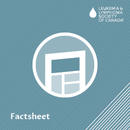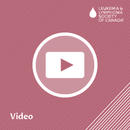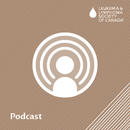Resource Library
Showing 1 to 10 of 37 results
Lymphoplasmacytic lymphoma (LPL) and its related condition, Waldenström macroglobulinemia (WM), are slow-growing subtypes of non-Hodgkin lymphoma.
Learn about PTCL, how it is diagnosed, an overview of treatments and what happens next
Advances in research on mantle cell lymphoma (MCL) are resulting in more options to treat the disease and improve the quality of life for people affected by him. Treatment for MCL, which is a type of non-Hodgkin lymphoma, can include chemotherapy, targeted therapy, stem cell transplant, radiation, and immunotherapy.
Tiffany Woodworth shares her story of receiving a Hodgkin lymphoma diagnosis as a young adult, and the supports that she received during her experience.
Dr. Jacqueline Costello talks about the basics of Diffuse large B-cell lymphoma (DLBCL), diagnosis, treatment, side effects, and research for DLBCL.
Bob Sisler has been in remission from Angioimmunoblastic T-cell lymphoma, a type of Peripheral T-cell lymphoma, since 2015. Bob shares with us his personal experience with diagnosis, treatments, and life after blood cancer. As a Peer Support Volunteer, Bob gives back to the blood cancer community through the LLSC’s First Connection program.
Paul Davis speaks to us about his experience with Diffuse large B-cell lymphoma (DLBCL) and an underlying Follicular Lymphoma.
In this special AYA episode, guest host Montana Skurka connects with Amanda Saunders, who 13 months after having a heart transplant was diagnosed with post-transplant lymphoproliferative disorder (PTLD). The two discuss what life is like living with a rare blood cancer while completing university and living through a pandemic.
When Darren Bessette was re-diagnosed with diffuse large B-cell lymphoma (DLBCL) in 2019, it was more difficult to treat. Darren says he was fortunate to get access to a "revolutionary" new treatment through a clinical trial. Chimeric antigen receptor (CAR) T-cell therapy is a way to get immune cells called T cells to fight cancer by changing them…
When Ron Ternoway was diagnosed with a rare blood cancer called Waldenstrom macroglobulinemia (WM), he tracked down as much information as he could so he could be, as he describes it, a full partner is his treatment.


